Can VPN Be Tracked? What are the Limits of Digital Anonymity?
Exploring VPN limitations, online tracking, and strategies for maximizing anonymity
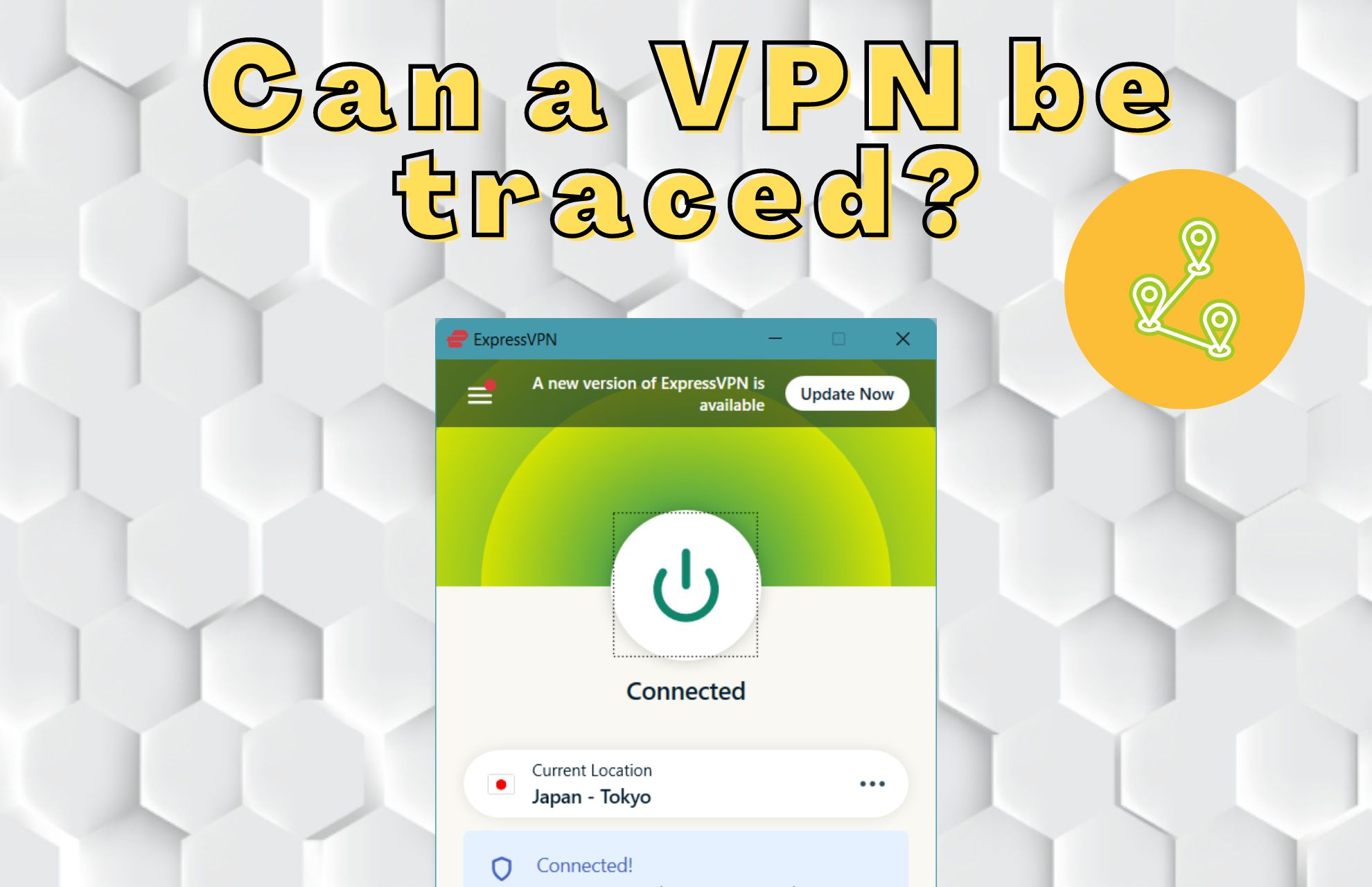
Can VPN be tracked? Even though VPNs promise online privacy, they can still be traced. Despite encryption, VPNs don’t cover every trace you leave online.
Learn how VPNs work, their limitations, and how you can be traced through them. Explore strategies to maximize anonymity and discover the best VPN to safeguard your online presence.
Can VPN be tracked?
Yes, unfortunately VPNs can be tracked. Despite hiding your activity though encryption and your location by hiding your IP, a VPN has limitations. A VPN can’t delete every trace you leave online. Moreover, even the most secure VPNs out there are not 100% foolproof. To understand the limits clearly, check this guide on what VPNs can track and what they cannot.
Sometimes they can glitch or be hacked.
Besides that, even though what you do online can be hidden with VPN to a pretty big extenst, your the fact that you use a VPN s pretty easy to discover.
For example, internet service providers (ISPs) or government agencies might detect VPN usage by monitoring unusual traffic patterns or analyzing network metadata.
Many sites also enforce age gates and ID checks. If you’re wondering whether a VPN can bypass age verification, the outcome depends on how the site verifies age—IP or location checks react differently than document-based systems.
How does a VPN work?
A VPN creates a secure, encrypted connection between your device and the VPN server. This connection routes your internet traffic through the VPN server, effectively hiding your IP address and encrypting your data.
This means that the data you send to a website is not coming directly from your device. Let’s say you’re accessing an online store while using VPN. The store will communicate with your VPN’s IP address and all requests you send to the website will be mediated through the VPN. The initial source of the traffic (you) is not visible.
Sounds good, doesn’t it?
But you have to keep in mind that the internet is a complicated place that uses immense amounts of data that go beyond what a VPN can hide.
There are types of online tracking that use information beyond your IP address and DNS requests. In front of these, the VPNs aren’t as effective (or they’re not effective at all).
Types of Online Tracking:
When it comes to online tracking, we’re talking about a lot of different types. While VPNs can help mitigate some forms of monitoring, some trackers target different aspect of online behavior that VPNs have no effect over.
If you want fewer pop-ups and trackers, see will a VPN block ads to learn which ads VPNs can block, which they can’t, and when to add a dedicated ad blocker.
Let’s take a closer look at the most common types of tracking.
Cookies
Ever noticed retail websites save your items to your cart even if you’re not logged in? That’s because of cookies.
These tools remember your selections and display personalized recommendations during future visits.
While VPNs can hide your IP address, they do not prevent websites from tracking your browsing habits through cookies.
Device Fingerprinting
When you visit a website, it collects information about your device’s operating system, browser version, language settings, and installed plugins. With this data, the website creates a unique user profile that can be used to identify you.
Does VPN stop it?
Not entirely. While VPNs can alter your IP address, they may not prevent websites from identifying and tracking your device through fingerprinting techniques.
However, using a VPN can make it more difficult for websites to associate your browsing activity with your true identity.
Location tracking:
1. GPS Tracking:
When you use a navigation app on your smartphone, it utilizes GPS technology to provide real-time directions based on your current location. Similarly, fitness tracking apps may use GPS to map your running route and calculate distance traveled
Does VPN stop it?
No. VPNs do not directly affect GPS tracking, as GPS operates independently of internet connectivity. Even if a user is connected to a VPN, their device’s GPS functionality can still be used to track their physical location by apps and services that have been granted access to location data.
2. WiFi Signal Tracking:
WiFi signal tracking involves analyzing WiFi signals emitted by nearby routers to approximate a user’s location.
By triangulating signals from multiple access points, ISPs and network admins can approximate your location.
Unfortunately, VPNs cannot prevent WiFi signal tracking, as WiFi signals operate independently of internet connectivity.
3. IP Geolocation:
When you visit a website, it can analyze your IP address and cross-reference it with a geolocation database to determine your approximate location.
In this case, VPNs can help. They route your internet trough servers in different locations, giving you another IP address. As a result, the website you visit won’t see your true IP address and location.
? Can you be traced through a VPN?
If you’re wondering whether using a VPN ensures complete anonymity, the answer is no. There are several factors to consider, particularly related to your online behavior.
There is no point in using a VPN to hide your identity if you post everything you do, as well as you whereabouts on social media.
At the same time, VPNs can be pressured by government agencies to deploy backdoors within their service to facilitate monitoring. That’s why thoroughly checking your VPN’s privacy policy is essential.
Last, but not least, even non-compromised VPNs can leak your DNS or IP address from time to time. The leak might be a matter of nanoseconds, but for someone who tries to figure out your real identity, it’s more than enough.
Here are some cases and factors that lead to tracing through VPN:
- You reveal your real identity (or even just details) by yourself while using VPN
- The VPN provider agrees to install backdoors in their service, which facilitates tracing
- Your VPN might leak your IP/DNS address, which also leads to uncovering your location and possibly your identity, too
- The device you use is compromised with malware
- Privacy Policies and Data Logging: While reputable services claim not to log user activity, some may retain certain logs for operational or legal compliance reasons. In the event of a breach or legal inquiry, these logs could be accessed, compromising user privacy.
- VPN Data Breaches and Hacks: Data breaches or hacks targeting VPN servers or infrastructure pose a risk to user privacy. If a breach occurs, hackers may access user data, including IP addresses and browsing history, compromising anonymity.
- VPN Providers Selling Data: Some VPN services may collect and sell user data to third parties for marketing purposes. This can expose users to tracking and profiling, compromising their anonymity and privacy.
That being said here, you must be cautious when you choose your VPN client and ensure that provides DNS leak protection and hides your traffic with the latest encryption.
How to Make Your VPN Untraceable
To maximize privacy and anonymity while using a VPN, consider the following strategies
- Use extra security features – enable the VPN kill switch, multi-hop connections, and DNS protection
- Use a VPN with strong encryption, such as AES-256
- Keep your VPN up to date
- Don’t give away personal information even if you use a VPN
- Use anonymous payment methods, such as crypto to pay for your subscription
- Check your VPN’s privacy policy and verify third-party security audits if any are available
?️What is the best VPN that can’t be traced?
Actually, there’s no such thing as a VPN that can’t be traced if you’re careless about your digital footprint. Shortly, any VPN can be traced.
However, there are a few VPN services that go out of their way to keep your online privacy intact by avoiding IP leaks and not installing backdoors in their service.
For instance, ExpressVPN is an excellent service offered by Kape Technologies. It did great on all of our tests, security- and speed-wise, and yielded zero IP/DNS leaks during our advanced security assessment.
- Download ExpressVPN software.
- Install it on your PC.
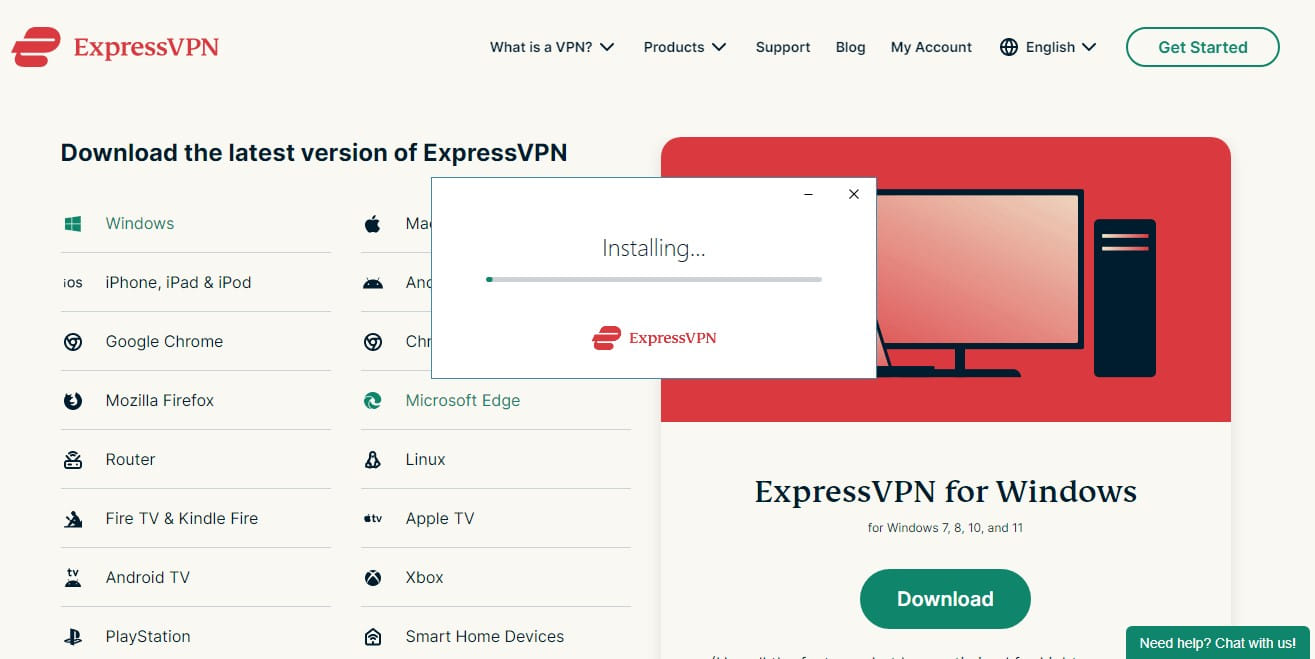
- Launch it and log into your account.
- Connect to the server of your choice.
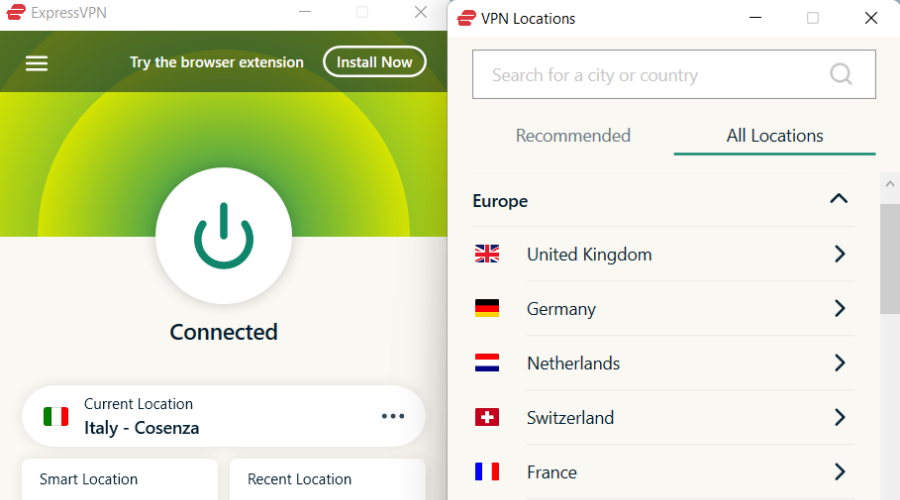
- Enjoy browsing the Internet privately.
Hence, this short time process should help you eliminate the chances to be traced by different institutions or actors that require your personal data.
Connecting to other servers from around the world gives you the advantage of masked IP addresses that tunnel your traffic and hide your real location.

ExpressVPN
Navigate and perform online tasks without being tracked by different actors using this 100% secure VPN.Read more:
Can VPN be tracked by the employer?
Yes, it is certainly possible that your employer tracks your VPN activity when you’re connected to the remote account of the VPN.
Basically, you can be tracked if you’re connected to the internal business network and use the VPN to navigate online or perform other activities.
Can VPN be tracked by the government?
Practically, the government it’s not able to see your VPN online data, and thus track your personal information.
In any case, this is not happening every single time. You can be tracked in specific circumstances if the VPN companies are required to offer your data to a court order or warrants in the US.
So you should worry about the government tracking your VPN data unless you’re performing forbidden activities online.
Yes, you can be traced through VPN, but it’s not likely
To wrap it up, it’s not impossible to be traced through a VPN. However, the odds of that happening are slim, and you can help keep them that way. For instance, never post your real identity online if you want to keep it hidden.
Additionally, try not to access any shady, malware-ridden website. Malware can easily compromise both your privacy and your device.
Read our disclosure page to find out how can you help VPNCentral sustain the editorial team Read more


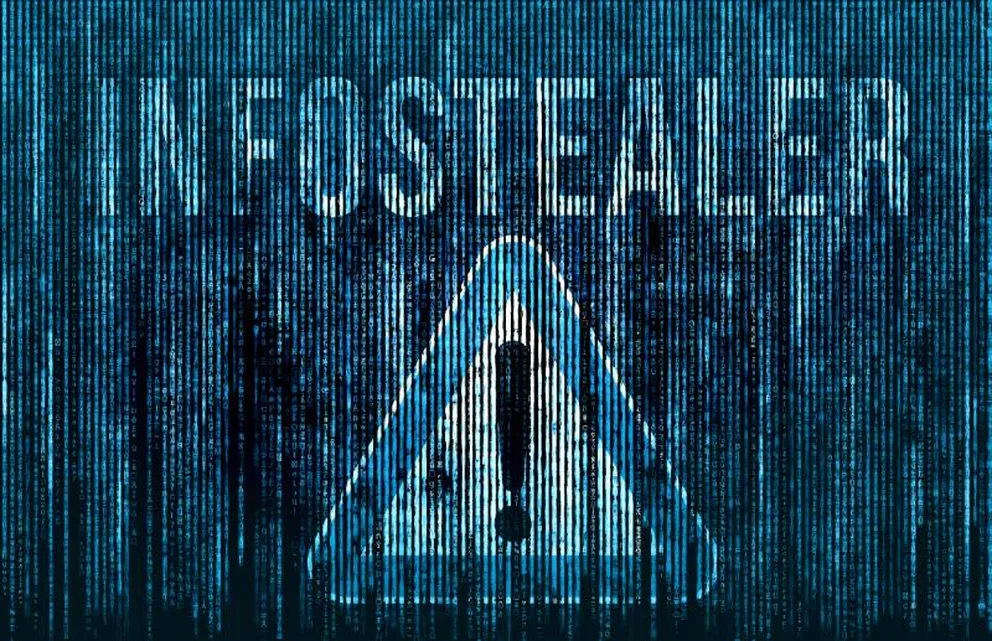
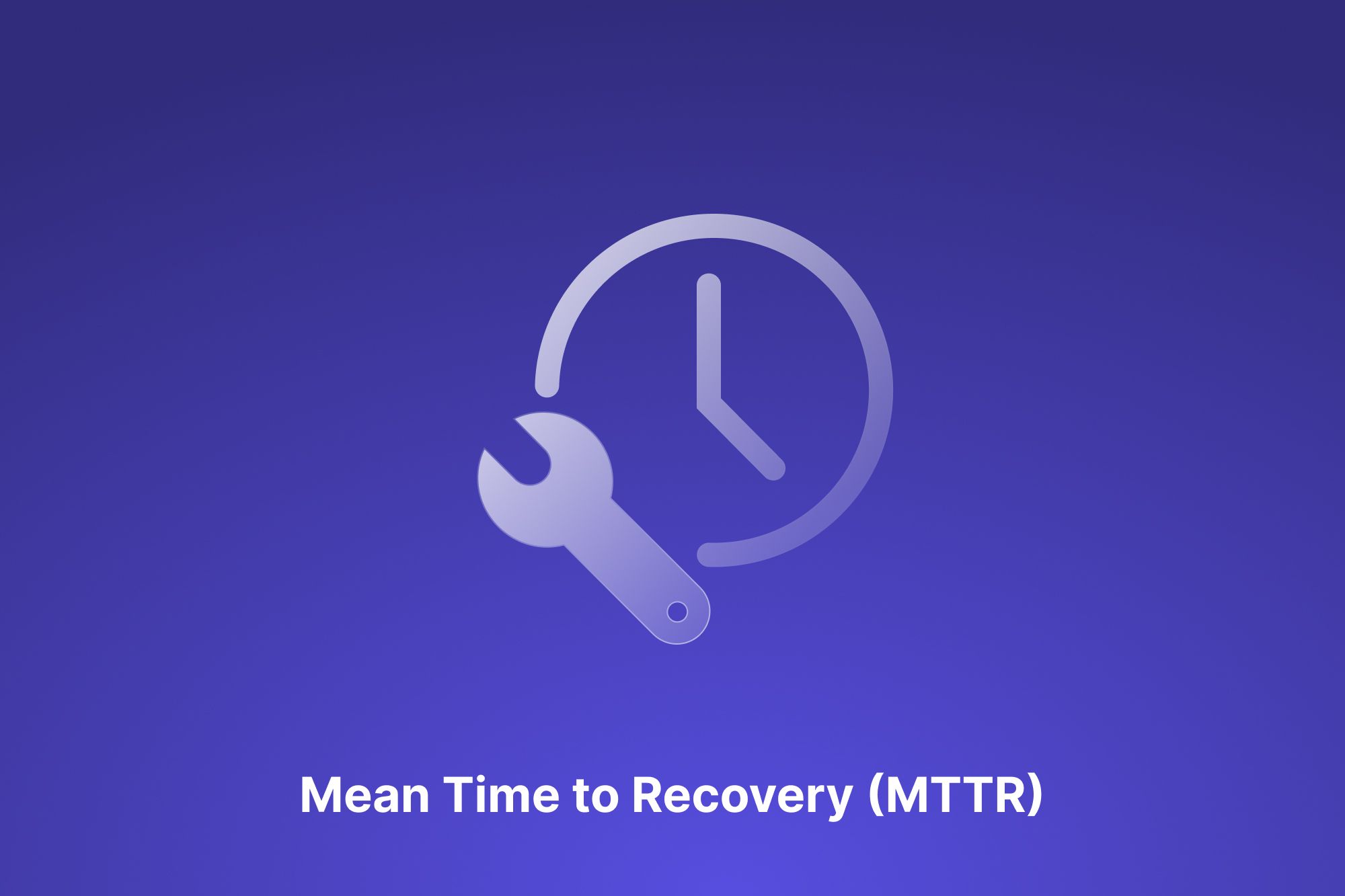
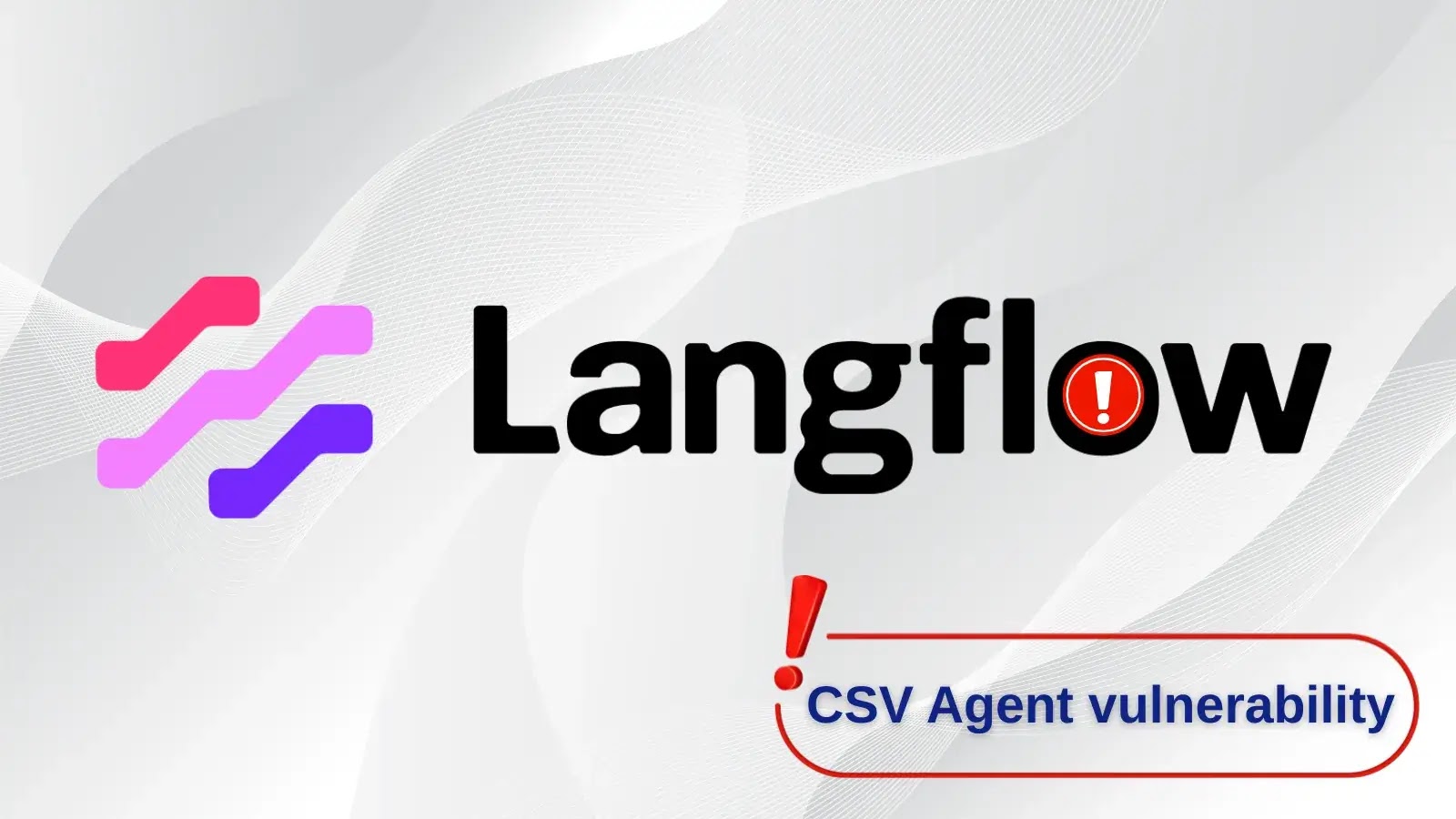
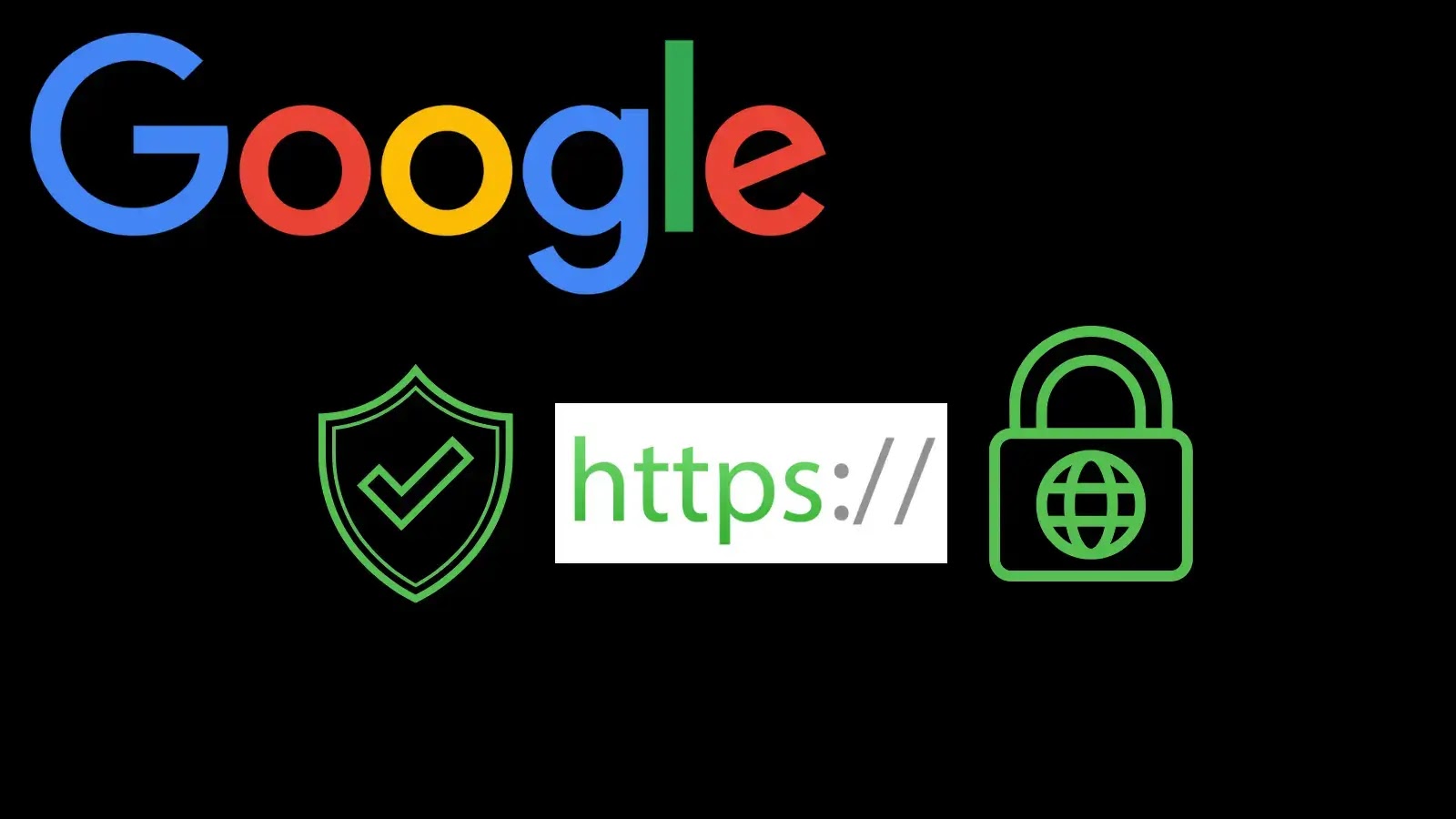
User forum
0 messages